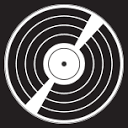
 All Music •
All Music •  Album of the Year (81%) •
Album of the Year (81%) •  Discogs •
Discogs •  Freebase •
Freebase •  Music Brainz •
Music Brainz •  Rate Your Music (3.62 / 5) •
Rate Your Music (3.62 / 5) •  WikiData •
WikiData •  Wikipedia
Wikipedia 
 All Music •
All Music •  Album of the Year (81%) •
Album of the Year (81%) •  Discogs •
Discogs •  Freebase •
Freebase •  Music Brainz •
Music Brainz •  Rate Your Music (3.62 / 5) •
Rate Your Music (3.62 / 5) •  WikiData •
WikiData •  Wikipedia
Wikipedia Robert Wyatt’s first full-length of new material since 1997’s Shleep is no less mischievous, witty, and poignant. As has become his custom, Wyatt offers a set of 16 new songs seemingly composed for a wide array of musicians including Annie Whitehead, Eno, David Gilmour, Tomo Hayakawa, Karen Mantler, Phil Manzanera, Paul Weller, and others he enlisted to record it. The album is divided into two halves. The first eight selections being neither here… while the last eight are nor there…. What divides the halves are in Wyatt’s mind and aesthetics alone, as the disc feels like a seamless, unified whole. From the opener, “Just A Bit,” a dastardly yet delightful bit of cynicism directed at organized religion and new age phoniness, the listener hears Wyatt in good humor with razor-sharp political sensibilities, and in fantastic musical form.
The songs on Cuckooland are, in many ways, the most accessible he’s written since Nothing Can Stop Us. Shleep had its moments in terms of this kind of “accessibility,” but more often than not saturated itself in Wyatt’s consummate and wonderfully listenable weirdness. Here, on cuts like “Old European,” one of five collaborations with poet Alfreda Benge, Wyatt’s wife, French salon music, smoky jazz from the cool jazz era, bossa rhythms, and Anglo melodies entwine in a bewitching nocturnal pop song. Others, such as “Beware,” one of a pair of writing collaborations with Karen Mantler – who contributed two more fine songs written for Wyatt’set – feature the strident harmonics of post-millennial jazz as it intersects in dialogue with pop forms from the ancient to the future. Mantler’s and Wyatt’s voices sound lovely together in this tale of paranoia and woe, and Wyatt’s trumpet solo is gorgeous.
Wyatt’s reading of Ms. Benge’s “Lullaloop” is a gorgeous, wooly bit of swinging New Orleans jazz, shot through with Weller’s bluesy, distorted, electric guitar solo and big, wondrous trombones by Whitehead. Wyatt covers, in his own fashion, the Boudleaux Bryant’s classic “Raining In My Heart,” accompanied only by his piano, and does a stellar, deeply emotional take of the Jobim & DeMoraes’ classic “Insensataez.” Wyatt’s “Trickle Down”” is a knotty bit of loping post bop jazz interspersed with sax samples from “Old Europe,” and killer double bass runs from Yaron Stavi. “Lullaby For Hamza,” and the instrumental “La Anda Yalam” (the latter written by Nizar Zreik), portrayt two sides of the Gulf Wars, one dovetailing the other, bringing about with unnerving, poetically moving, and damning conviction, the side of these wars not often revealed to Westerners. These are tomes full of melodic and harmonic creativity, offered as deathly serious as words of elegance and grace, and become elegies sending the listener off with more to think about than a pop album would normally dictate.
Wyatt has decorated his own booklet with lively, minimal artworks, and has annotated his songs to document certain facts, locations and occurrences, making the entire package indispensable. Most importantly, Wyatt has demonstrated once again that it makes no difference what else is going on in the pop world, he still creates a fiercely independent and wide open notion of song and composition that is always abundantly “musical,” topically relevant, as well as entertaining, provocative, and completely, utterly engaging from top to bottom.